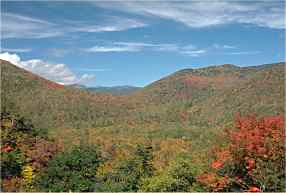The US Forest Service has scrambled to allay journalist and First Amendment advocate concerns over a proposed directive that would require a permit for commercial photography and filming in wilderness areas.
 Forest Service Chief Tom Tidwell said Sept. 25 amid the backlash that the new rule would not apply to newsgathering.
Forest Service Chief Tom Tidwell said Sept. 25 amid the backlash that the new rule would not apply to newsgathering.
“The fact is, the directive pertains to commercial photography and filming only -- if you’re there to gather news or take recreational photographs, no permit would be required," he said. "We take your First Amendment rights very seriously. We’re looking forward to talking with journalists and concerned citizens to help allay some of the concerns we’ve been hearing and clarify what’s covered by this proposed directive.”
Journalists and press freedom advocates said the directive has a wider scope and could curb reporting activities.
“Allowing forest supervisors to decide which journalists get to report in wilderness areas and what stories they can or can’t tell smacks of censorship and prior restraint," said Mark Freeman, president of the Outdoor Writers Association of America and a columnist for the Mail Tribune in Medford, Ore. "Restraining journalists and their reports was not intended to be part of the act’s restriction of commercialization of wilderness areas.”
OWAA executive director Tom Sadler said that outdoor writers chronicling the decline of the country's wild areas five decades ago sparked a groundswell of support for the preservation of such areas through the Wilderness Act of 1964. "It would be a major step backward for the Forest Service to make it harder for the public to have virtual access to these wilderness areas that are, after all, public."
The directive is currently open for public comment through Nov. 3. The Forest Service said commercial permit fees range around $30 for a group of up to three people, while a Hollywood production could be as high as $800. Media reports that permits could cost up to $1,500 are erroneous, the federal agency said.
The Forest Service said areas protected by the Wilderness Act need to remain in their natural condition, achieved in part by limiting "certain commercial enterprises."


 A focus on all the ways that greenhouse gases are created, not just from fossil fuels, marks the evolution from clean energy and clean tech to climate tech, according to Melissa Mahoney from V2 Communications.
A focus on all the ways that greenhouse gases are created, not just from fossil fuels, marks the evolution from clean energy and clean tech to climate tech, according to Melissa Mahoney from V2 Communications. Kristin Wilson-Palmer, who has been a senior VP in Edelman’s Washington, DC office since 2021, joins the Natural Resources Defense Council as chief communications officer.
Kristin Wilson-Palmer, who has been a senior VP in Edelman’s Washington, DC office since 2021, joins the Natural Resources Defense Council as chief communications officer. Educating the next generation to the facts and science surrounding the climate crisis.
Educating the next generation to the facts and science surrounding the climate crisis. Melanie Janin, who was executive VP at Weber Shandwick, has joined Conservation International as chief communications & marketing officer.
Melanie Janin, who was executive VP at Weber Shandwick, has joined Conservation International as chief communications & marketing officer.



 Have a comment? Send it to
Have a comment? Send it to 
No comments have been submitted for this story yet.